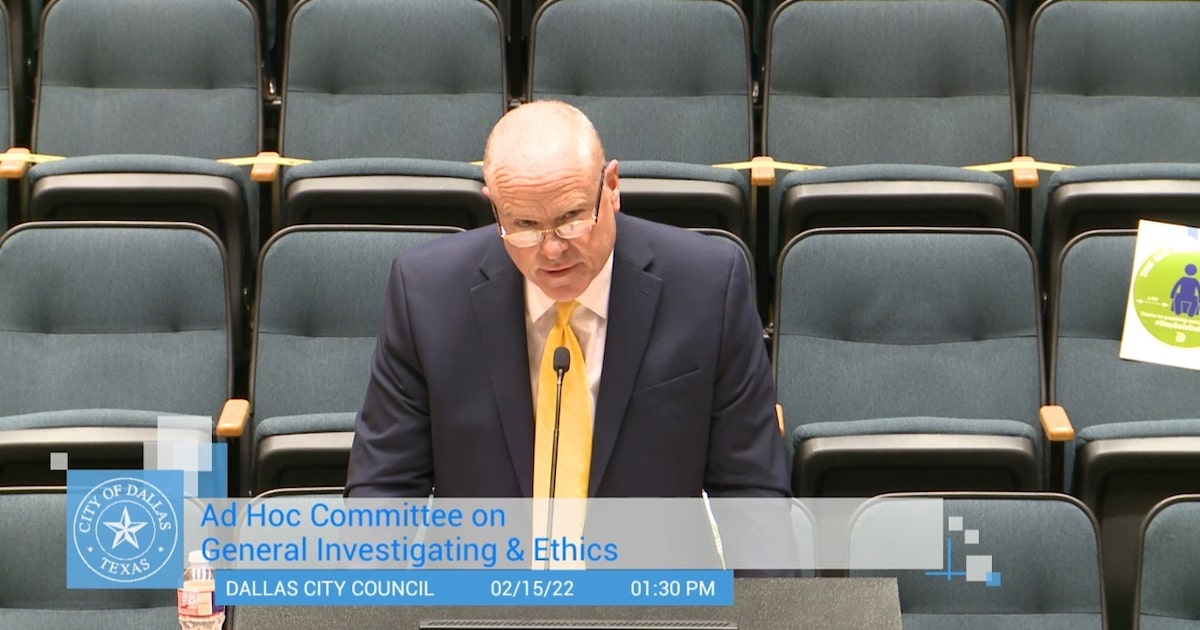Dallas’ rocky search for a new inspector general has taken a new turn.
Former Inspector General Bart Bevers has sued Dallas officials for wrongfully terminating him, according to a court filing. Bevers alleged the city retaliated against him after he produced two reports earlier this year that raised questions about the city’s procurement process and whether the city was overspending public dollars.
Bevers was also investigating a third case involving a city official, though he did not identify who it was.
Bevers, who was hired as the city’s first inspector general in 2022, reapplied for the position after voters in November approved a charter proposition that moved the inspector general out of the city attorney’s office to give the city’s top ethics official the autonomy to pursue cases of waste, fraud and misconduct.
Political Points
One of the provisions in the charter proposition called for the head of the department to be “a competent practicing attorney of recognized ability.” But that requirement did not make it into the materials sent out by recruiters. The city eventually hired Timothy Menke, an experienced law enforcement executive who has led investigations at the federal and state levels. However, he was not an attorney, which violated the charter.
When Menke began his job on June 30, effectively ending Bevers’ employment, the former inspector general filed a complaint with the city attorney’s office stating the city had violated the charter.
Last week, the city voted to discharge Menke from his position. Dallas officials declined to comment citing pending litigation.
Bevers, in his court filings filed a day after Menke was discharged, said he was one of roughly 30 applicants, with 21 of the candidates being from Texas. Among the candidates deemed by MGT, the recruiting firm, as “Tier 1,” court documents state Bevers was the only person in the selection process who was a licensed attorney. Additionally, he was the only “certified investigator general,” which is also required by the city’s charter.
The Dallas Morning News is seeking public records regarding the resumes of the candidates who applied for the job and the communication between council members, who held the final approval.
The request, filed on Aug. 6, was sent to the Attorney General’s office for review. The city withdrew its request for the attorney general’s ruling on Aug. 27 and partially released documents that do not provide clarity about the oversight or information to verify Bevers’ claim. It is also unclear if Bevers was a finalist.
Retaliation?
Bevers’ lawsuit alleges the city retaliated against him and made false statements about misconduct and violation of city policies to the Texas Workforce Commission.
The News has requested case documents from the state agency to verify the account. It is unclear exactly what false claims were made.
Bevers, per the court filing, also attributed his unsuccessful attempt at retaining the role to two Jan. 17, 2025, reports sent to city leadership, including City Manager Kimberly Bizor Tolbert, Mayor Eric Johnson and the rest of the City Council.
Bevers’ court filing mentioned an investigation against a city official and said he quickly experienced a pattern of “retaliatory treatment from City officials that culminated in an executive search company, MGT, being hired to find a new Inspector General and the ultimate hiring of Timothy Menke for the Inspector General position, which resulted in the termination of Plaintiff’s employment by the City.”
One of Bevers’ reports questioned expenses and the city’s procurement process from last year’s City Council retreat at the DFW Grand Hyatt hotel. According to his report, city officials picked vendors prior to obtaining three competitive bids. The hotel and the facilitator the city picked were not the most or least expensive options, and the city spent nearly $42,600 on the retreat and exceeded their $17,000 budget.
The second report looked into the aviation department’s $637,695 agreement with Construction Rent-A-Fence for concrete flatwork and railings at Dallas Executive Airport. Bevers found the proposal did not go through a formal solicitation process and lacked approval from the City Council. Due to a lack of competitive bidding, the city paid three times the next highest quote for labor and materials.
In both reports, Bevers recommended giving better training to employees to improve their understanding of procurements.
